Lake Breeze Vineyards is more than a beautiful winery situated in the majestic Okanagan Valley, BC. It’s also home to a farmstead where vegetables, herbs, an orchard, chickens, and pigs are grown. The MacIntyres, who own the 16-acre vineyard and winery overlooking Lake Okanagan, are passionate about honoring the land and bringing local agriculture into their guests experience.
Jessica Young is the farmer behind The Farmstead at Lake Breeze Vineyards, and this is her story.
Jessica started her journey as a farmer in Vancouver, Canada, when she began mowing lawns in her early twenties to make ends meet. She enjoyed being outdoors working on landscapes and decided to pursue a degree in horticulture. “I found out that I just loved it,” she shared. “It was the landscaping and ornamental side of things that really pulled me in.” She learned everything from plant identification, soil biology, and pest management to hard landscape and garden design. She worked for a talented garden designer on an all-woman team for five years and honed her skills as a horticulturalist.
As Vancouver became more congested, Jessica felt called back to her home region of the Okanagan to start her own gardening business. Lake Breeze Vineyards was one of her early clients, and she managed their decorative garden surrounding their outside patio restaurant and tasting room for six years.
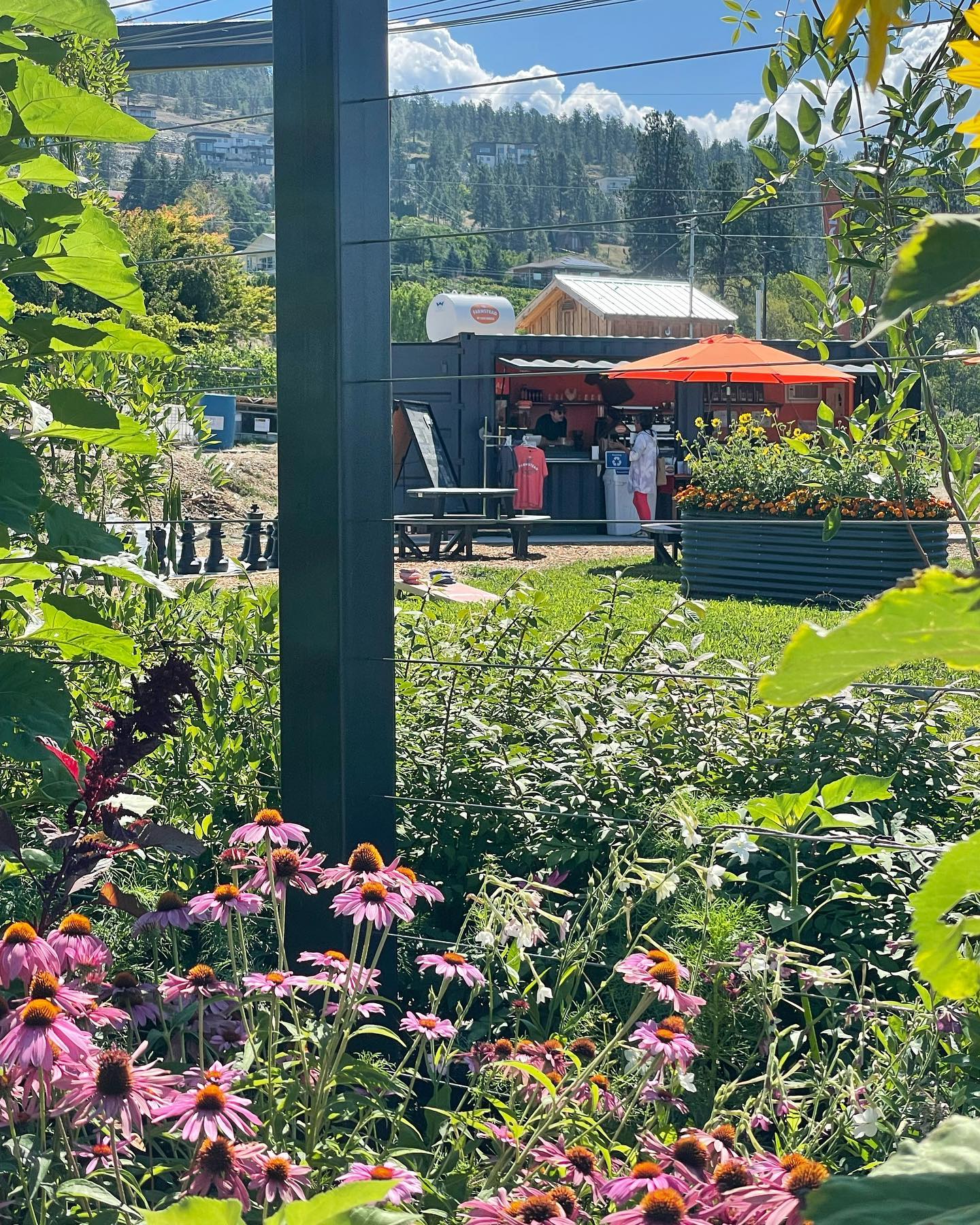
In June of 2020 the MacIntyres decided to add a farmstead to their enterprise and hired Jessica full-time to work in animal husbandry, grow food for their restaurant, and maintain the ornamental landscape. While she could use her knowledge in plant and soil science as a base, raising pigs and chickens has been a big learning curve. “It’s been a lot of learning, fast and hard for sure. But it’s fun learning too. There’s a lot online – that has been my tool. You can literally learn anything from YouTube these days. Like, how do I give a pig an injection? OK, I’ll watch it on YouTube,” Jessica laughed. She has also collaborated with and learned from fellow local farmers. “Everybody’s willing to chat with you about something they’ve learned about farming along the way,” she said. Her mentor and closest farming companion has been Karla Cox of Plot Twist Farms who she calls the “Greens Queen” for her skills in growing amazing salad greens (you can read about Karla’s farm venture here).
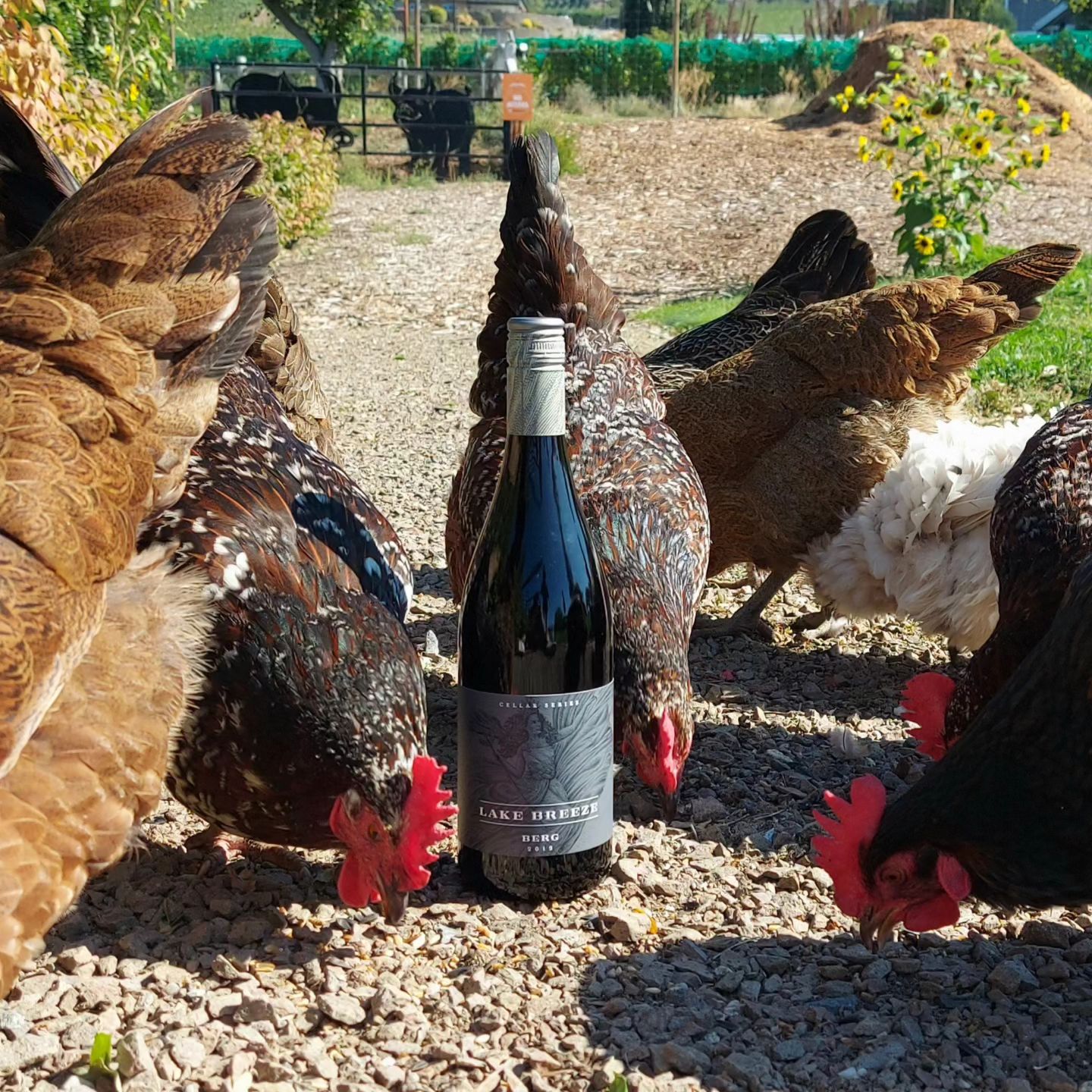
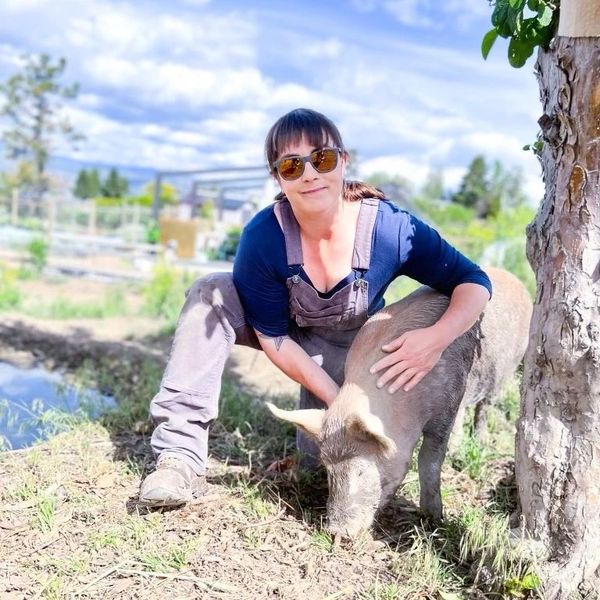
Jessica is enthusiastic about soil health, and regenerating the land from pesticide application has been an important aspect of her work. “I came in with mulch and more organic ways of keeping weeds down, and I use an organic fertilizer,” said Jessica. “I started to notice after maybe three to four years that the mycelium network that was underneath the mulch was just incredible. You just had to move the first three to four inches, and it was everywhere. It was this beautiful white mat underneath everything, connecting everything, and it was showing me that everything was alive and interconnected, speaking with each other, throwing down nutrients, breaking down that wood mulch and just working symbiotically together. It was really, really a comforting thing to see.”
The New Perennial movement informs much of Jessica’s gardening methodology. “Piet Oudolf is a Dutch garden designer who pretty much started it. It’s taking us away from the English garden planting designs of straight hedges, straight lines, geraniums. I call it Grandma planting,” she laughed. “It’s cute, it looks clean and tidy, but it’s just a different type of gardening. The New Perennial movement is really wild. And I love the wild. I want my plants interconnected and no space between them and moving in the wind and lots of grasses and really tall perennials and using things that people don’t necessarily see as a garden plant. Maybe you saw it on your hike out in the wild and you think, Oh, it’s just a weed. But then it does really well in your climate, and it gets to six feet tall and it breaks up the soil because it’s got a huge tap root on it and you might think, well, I’m gonna use it in the garden, that’s going to be part of the design.”
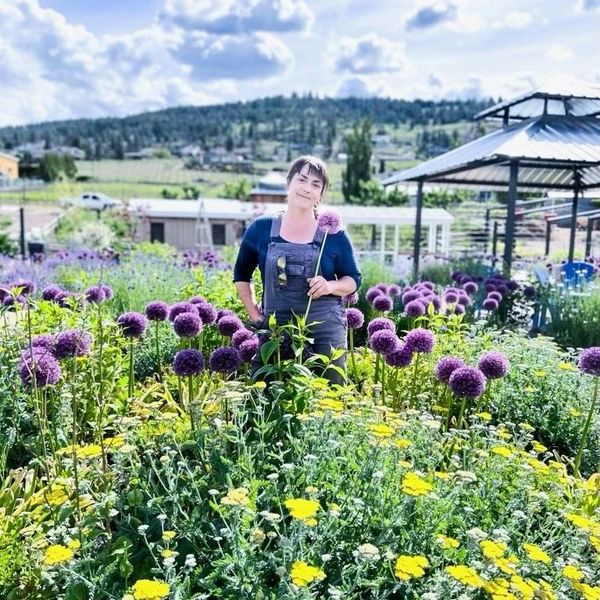
One way she mimics nature’s design is by planting in masses rather than straight lines. “I would choose to plant eleven grasses in a mass and then in front I would do something shorter, and I wouldn’t do just one or two plants, I’d probably do five or seven or nine. And you’re doing these clumps of huge plants all together and in the end it turns into this beautiful, moving, living ecosystem because everything just loves it: the bees, the bugs, the soil just loves it. There’s no open soil to be exposed and dry out.”
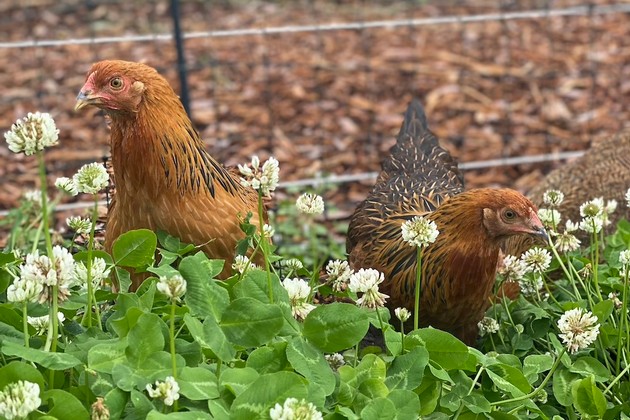
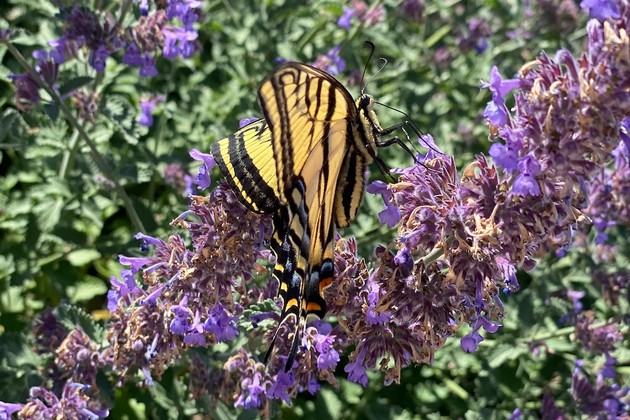
Our interview was interrupted a few times by visitors stopping by to ask about the pigs. “We just got piglets two days ago, so everybody wants to see them,” Jessica laughed. The farmstead has been a significant draw for guests of the winery. “Lots of people will come and say, you know, I’ve never even seen a pig in real life. So that’s an experience for them.”
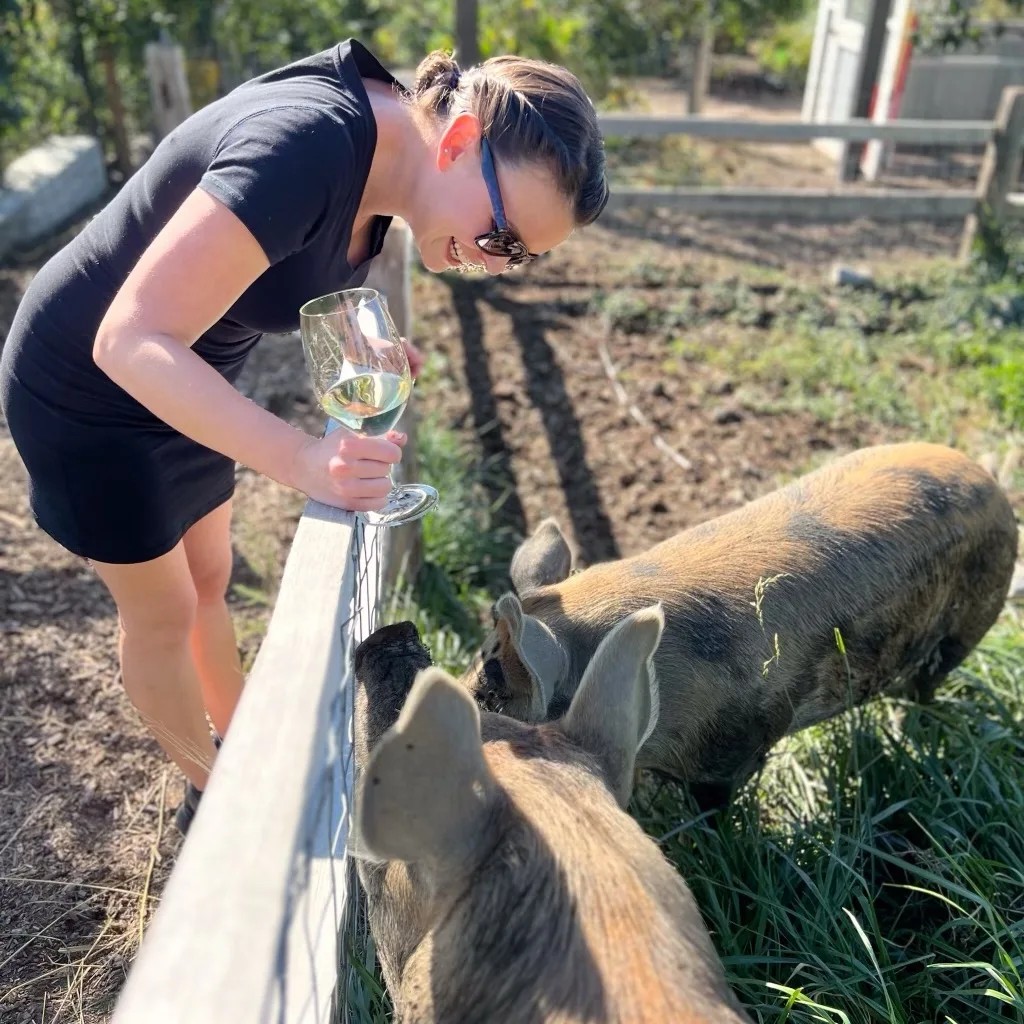
When I asked Jessica about how she copes with the stress of working a farm and garden fulltime, she responded with quick candor: “I will not lie to you, it’s hard.” Because of the seasonality of the work, from April to June she works long hours. “There’s no forgiveness in the spring. You have to remember that you can’t do everything. And that’s tough because maybe you want it done a certain way and you have to let go of some of that. In the end, I’ve learned that it’s just better that way because lots of people have their own creative ideas if you just let them go a little bit.”
The hard, constant work is rewarded at the end of summer, Jessica explained. “Come August, once everything’s in the ground and it’s growing, you get to sit back and take a breather. It’s sure beautiful. It’s sure fun. It’s the reward. And in fall, everything is in full growth and it’s at its peak. Everybody has food in the kitchen and it’s busy and everyone’s happy.”
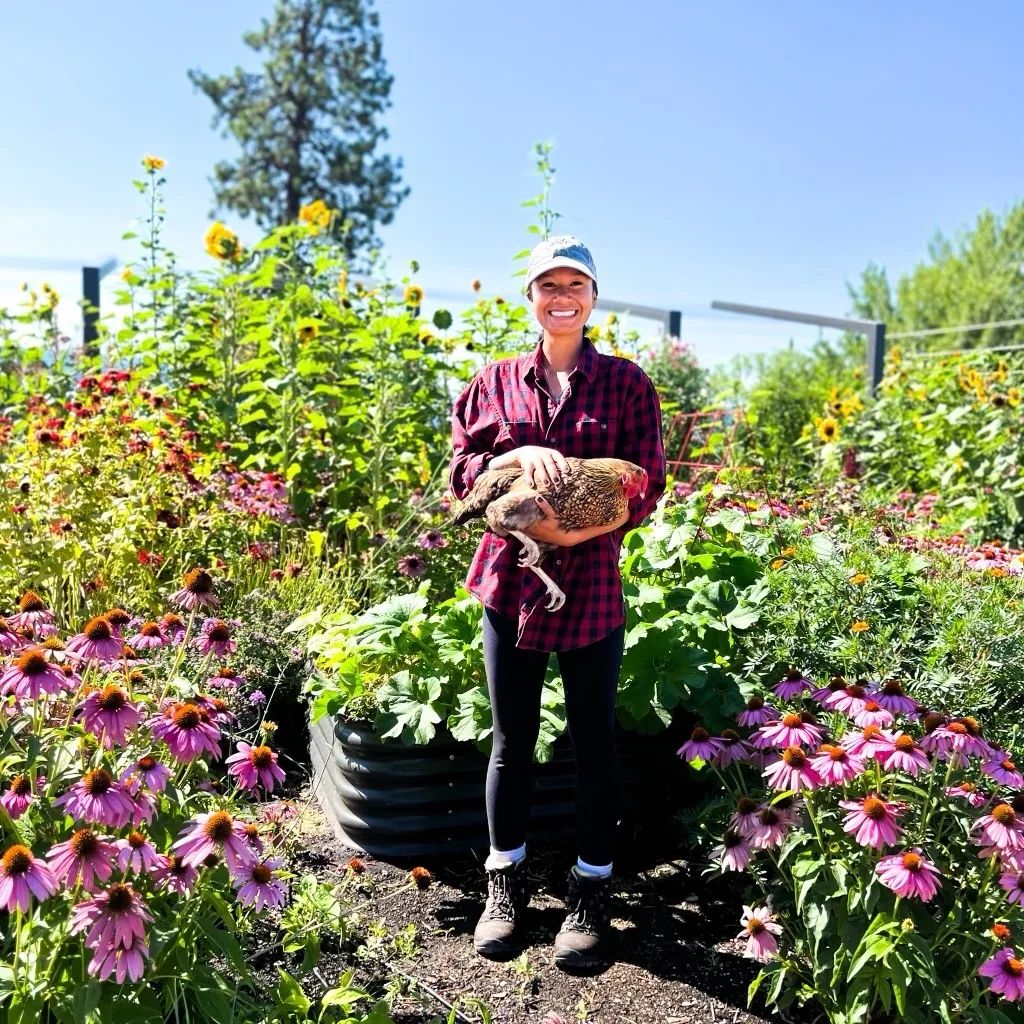
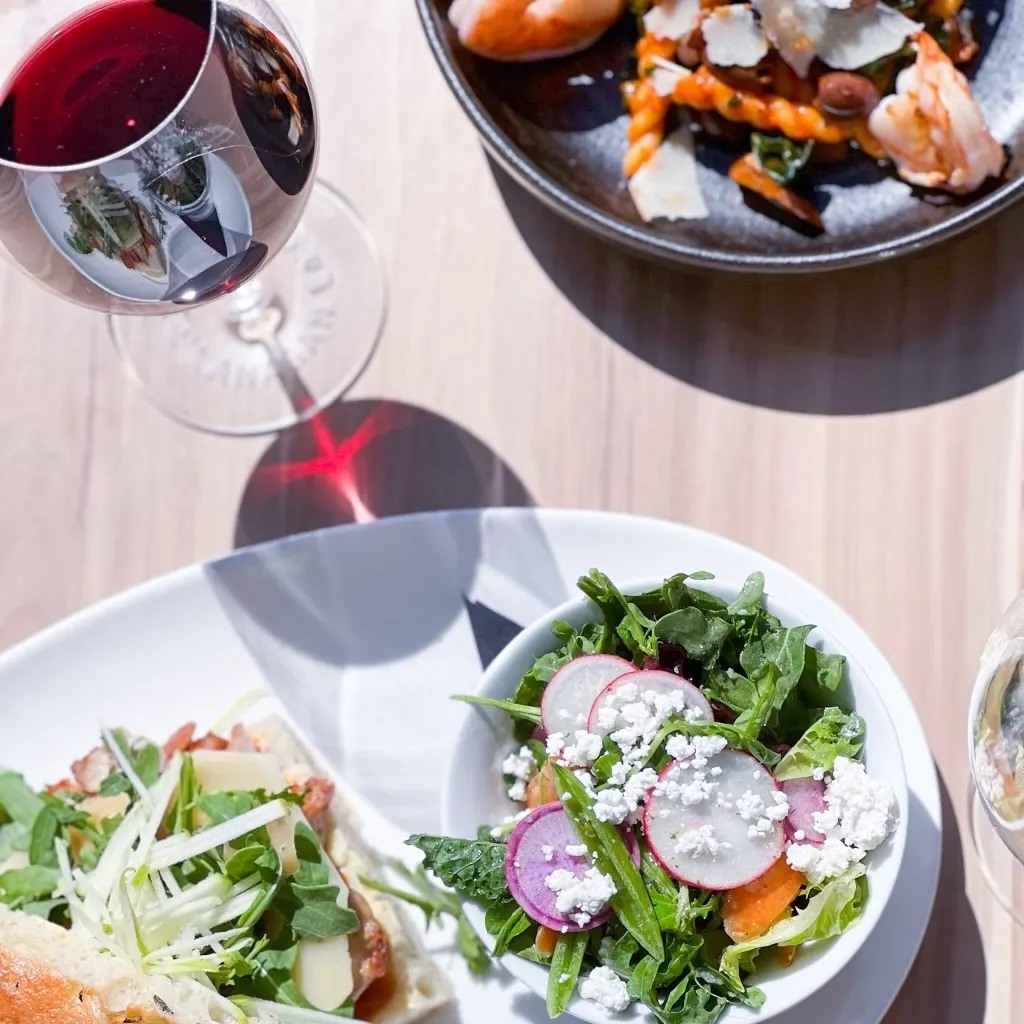
Spending time in nature is one way she relaxes. “I can be having the most wound-up day with the stress of life and sometimes all I need to do is just come and get my hands dirty or be with the plants. Start pruning something. Get into the greenhouse, water the plants and it’s like, well, I had a problem earlier, but I don’t even feel that anymore. Just getting closer to the plants helps. And the chickens too, even sitting with chickens for five minutes can be very therapeutic.”
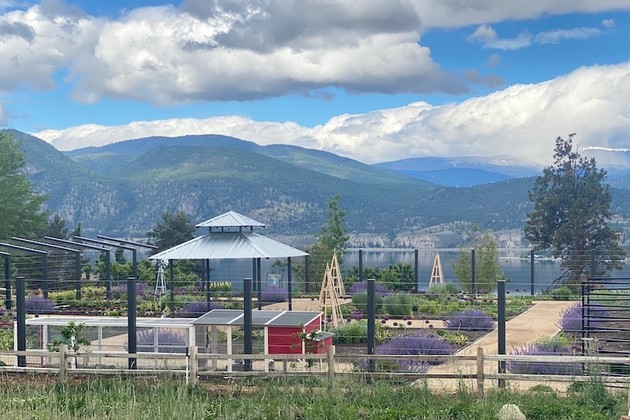
Jessica is looking forward to continuing to improve the farm. “I stand back every once in a while and realize, wow, it’s so beautiful, we’ve done so much. But I see so much more potential and improvement in growth and bare soil that I need to have covered and I look forward to standing back in five years and having that little sapling apple tree twenty feet tall. I want to reap the benefits of everything. It’ll never be finished. Your garden is never finished. But I want to see it fuller.”
Lake Breeze Vineyards is a beautiful demonstration that a winery can also be a thriving ecosystem, where a passion for the land and soil health converges with talented garden design to create a holistic experience for guests. With each plant and animal playing a vital role, Jessica’s dedication has not only transformed the property but offers a profound connection to nature. The Farmstead at Lake Breeze Vineyards offers a hopeful glimpse into a future of humans repairing our relationship with nature and enjoying every step of it.
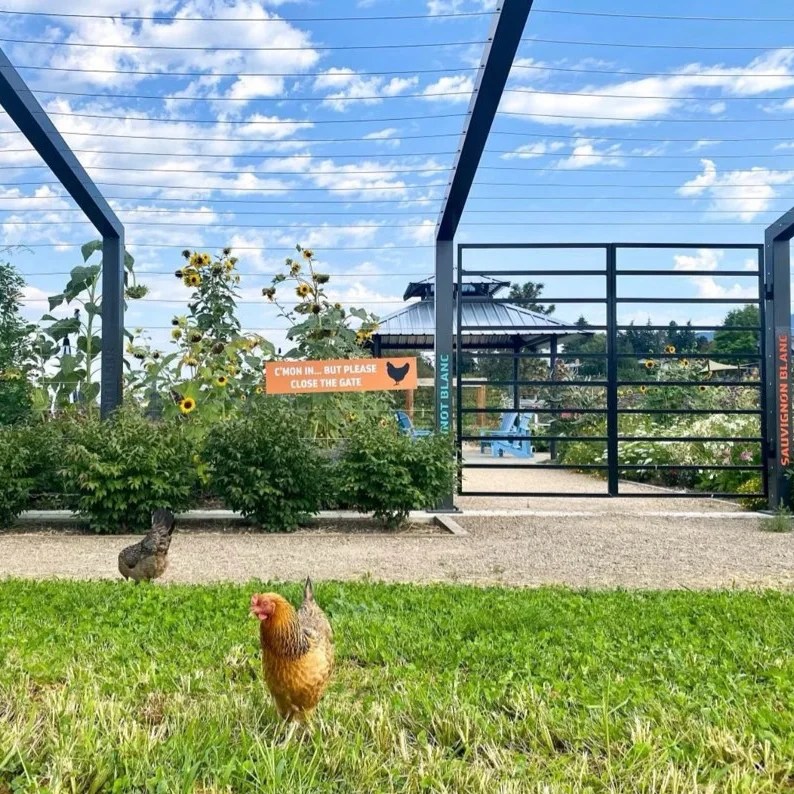
Jessica Young
“I love sitting within a large planting of tall grasses and perennials and everything’s just buzzing and moving and dancing in the wind. Just becoming part of it for five solid minutes – that can refill your cup pretty fast.”

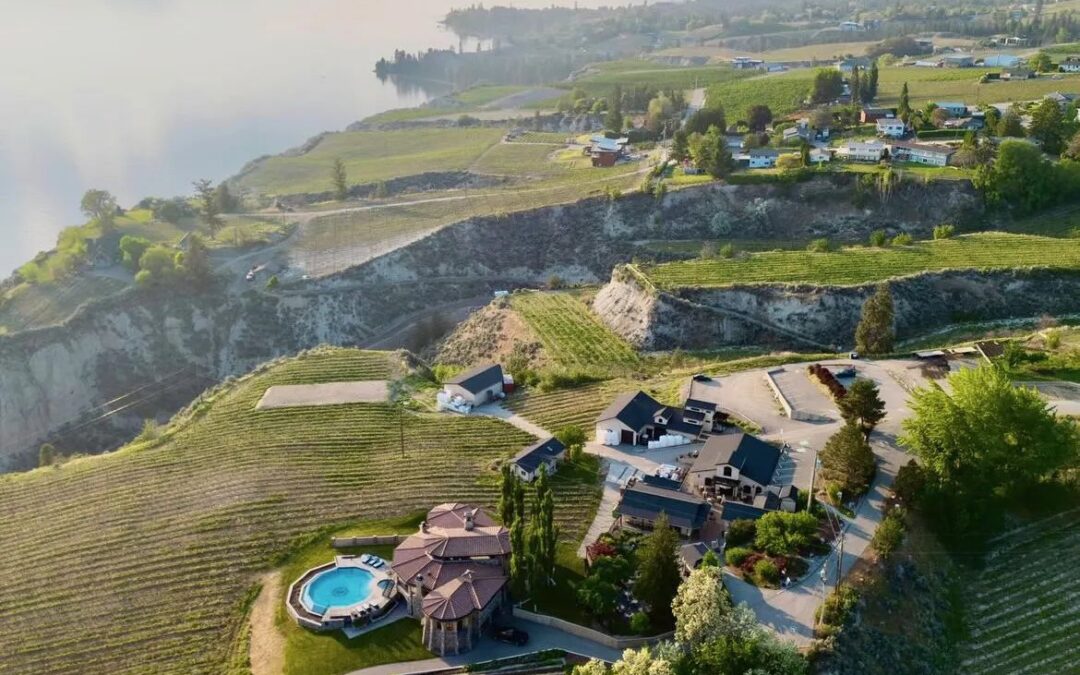
This continues to be another piece in a long stream now, of wondrous and thoughtful writing, on how to grow, how to farm and how to be.
Congratulations!
Daniel
Thank you so much ❤️. I am learning a ton and meeting amazing farmers along the way!